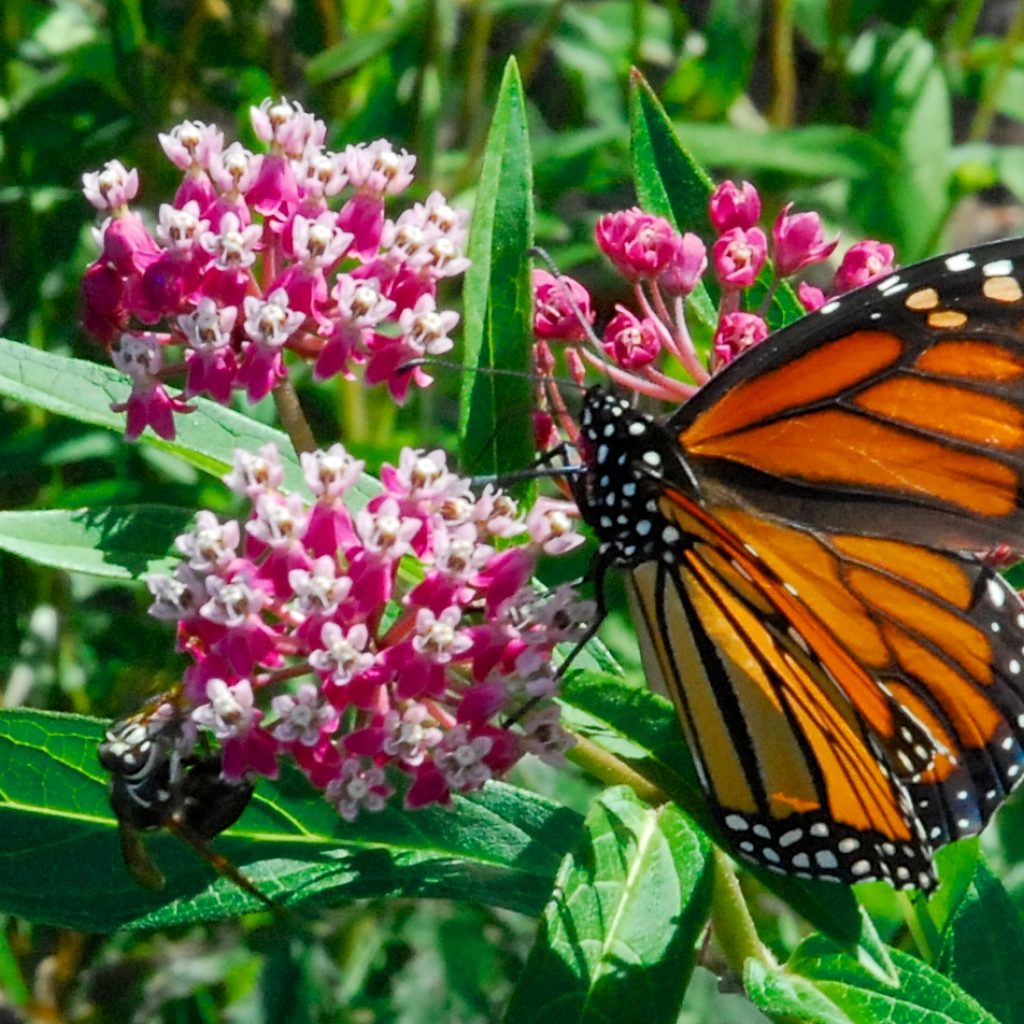Research and Design
RESEARCH (Biological)
Bioconcentric Farms wants to be used in the tradition of a Research Field Station by students and graduates alike. Since the farm is starting from a point of very low diversity with no active land management for fifty years prior to its purchase, the establishment of baseline data is a high priority: documenting existing flora and fauna.
This data will be overlaid with studies of changes in faunal populations resulting from the planned introduction of native plants as a part of the nursery operation. Well-thought studies will be carried over time, modeled on the Long-term Ecological Research Program.
Of immediate focus is initiating an annual monitoring program of the monarchs that have to date returned yearly and how these populations can be augmented through increased production of milkweed populations of varied species native to Michigan. This could lead to an annual monitoring program with local elementary and high schools.
It may also be of interest to harvest Monarch eggs to rear them out in a secured environment guarding against wet years with increased fungal pressure and the various predators documented to date. One of these is a little known species of parasitoid wasp Pteromalus sp. that lays eggs into the chrysalis, itself a topic of study.
However, proposals of any nature are welcome for review. The farm is especially looking to establish ongoing partnerships with schools of higher learning to allow a continuity of research over an extended timeframe. The 2023 tab summaries these projects but any proposal will be considered.
DESIGN (Cultural)
Designing a diversified Market Garden fronting M72 using wattle fencing for small farm animals and plantings and to direct traffic flow is desired. This would include elements listed under 2023 Intern and Farmer Projects such as native cut flower beds, food forest, propagation of southeastern US trees and shrubs, and a wetland planting in a low area; in general, a botanical garden for propagation, education, and sales.
For Planners an adaptation of New Ruralism modeling applied to development of the heavily used M72 corridor between the National Lakeshore and Traverse City would be welcome. The corridor currently hosts a number of farm markets; an Agri-tourism brochure could serve to convey this vision and provide policy for local zoning.
The farm consists of agricultural and gateway commercial zoning along M72, the later including agribusiness development; a plan to optimize this for Value Added Product (VAP) development would merge with the following.
Economic studies determining the optimization of the farm with the local economy and VAP is of great interest as are means of sustaining a work force by providing winter employment. Assistance in developing a model of a circular economy of interrelated businesses that share in the flow of goods and services is desired.
For example, the natural resources arm of Inner-Coastal supplies the farm with compostable “waste” items including forestry slash for the creation of biochar. The farm produces berries; these plants are also used for cuttings to establish nursery stock for retail sales and use by the landscaping arm. Developing a commercial kitchen would allow VAP food products, sold at the farm market and regionally.
Lastly – and central to the Farm Research, Planning, and Economic Development – is the monitoring of carbon sequestration by various inputs and cropping scenarios through on-farm research, planning farm growth to optimize this variable, and developing a carbon market for this and future Bioconcentric Farms’ branded entities, adopting a model of Collaborative Ecological Restoration and Management.

Bioconcentric takes unsolicited applications at any time. Applicants are encouraged to fill out the fields in the application form below; or if submitting a proposal created off line, attach it as a pdf emailed to mfulrich@gmail.com. General questions prior to application are also welcomed. A list of topics of interest to the Farm is given under the 2023 Projects tab. Most of these will remain open-ended priorities.
Given that these research topics are not initially income-generating Internships may include a stipend depending on all factors including experience. Limited hourly wages working with the native landscaping arm of Inner-Coastal may be an option. The region’s summer workforce is scarce; anyone can easily pick up a part time job in the nearby towns of Empire and Glen Arbor at competitive rates. Grant-funded activities are of course encouraged.
Biological
In the interests of conducting Long-Term Ecological Research the primary goal at this point is to gather baseline data. These studies ranges from spring and fall bird counts and nesting studies, investigating the known population of blue racer snakes that frequent the property, creating a hibernacula to gather, protect, and assess all snake populations, building up a collection of insect specimens and attempting to at least identify them to Genus, studies of soil biota, identifying small mammal populations, and so forth. Proposals addressing this data collection are welcome in addition to the immediate focus on monarch populations.
Design and Planning
The topics discussed under Research and Design above provides a broad picture of topical interests. Interdisciplinary study is a theme permeating Bioconcentirc Farms. Simply initiating a collaborative discussion along the lines of Collaborative Ecological Restoration and Management would be greatly welcomed.
Any party interested in aspects of Research Design and Planning are encouraged to join this conversation. Discussion groups will be developed around the topical interests of participants. This will allow the students to create a Content Management System for this multifaceted farming endeavor.
To be made aware of how to participate, simply send an email expressing interest to mfulrich@gmail.com. Ideally the model of Collaborative Ecological Restoration and Management would be adopted.
